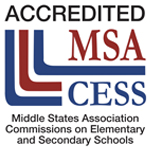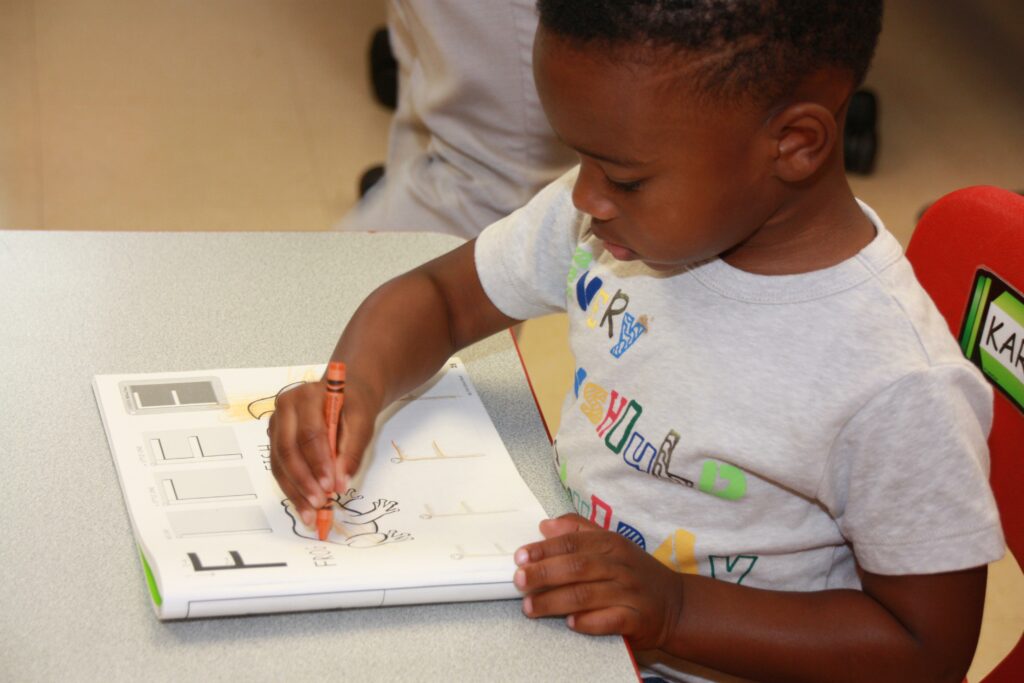
By Julie Kucks
Every parent has probably said at least once, “My baby’s growing up!” It usually is a bitter-sweet feeling. There is a sense of loss as each stage ends and a new one begins. And there is a sense of pride that the baby turned toddler turned preschooler is passing through the appropriate phases of growth.
But it sometimes can feel difficult to differentiate between the phases – what developmental skills should your toddler have mastered and what skills do they need to master before entering preschool education?
There are four basic areas of important development marks that are helpful for children to hit before entering their preschool education. Keep in mind that every child’s developmental journey is different and your child’s individualized experience is always more important than hitting universal benchmarks.
Social/Emotional/Independence Skills
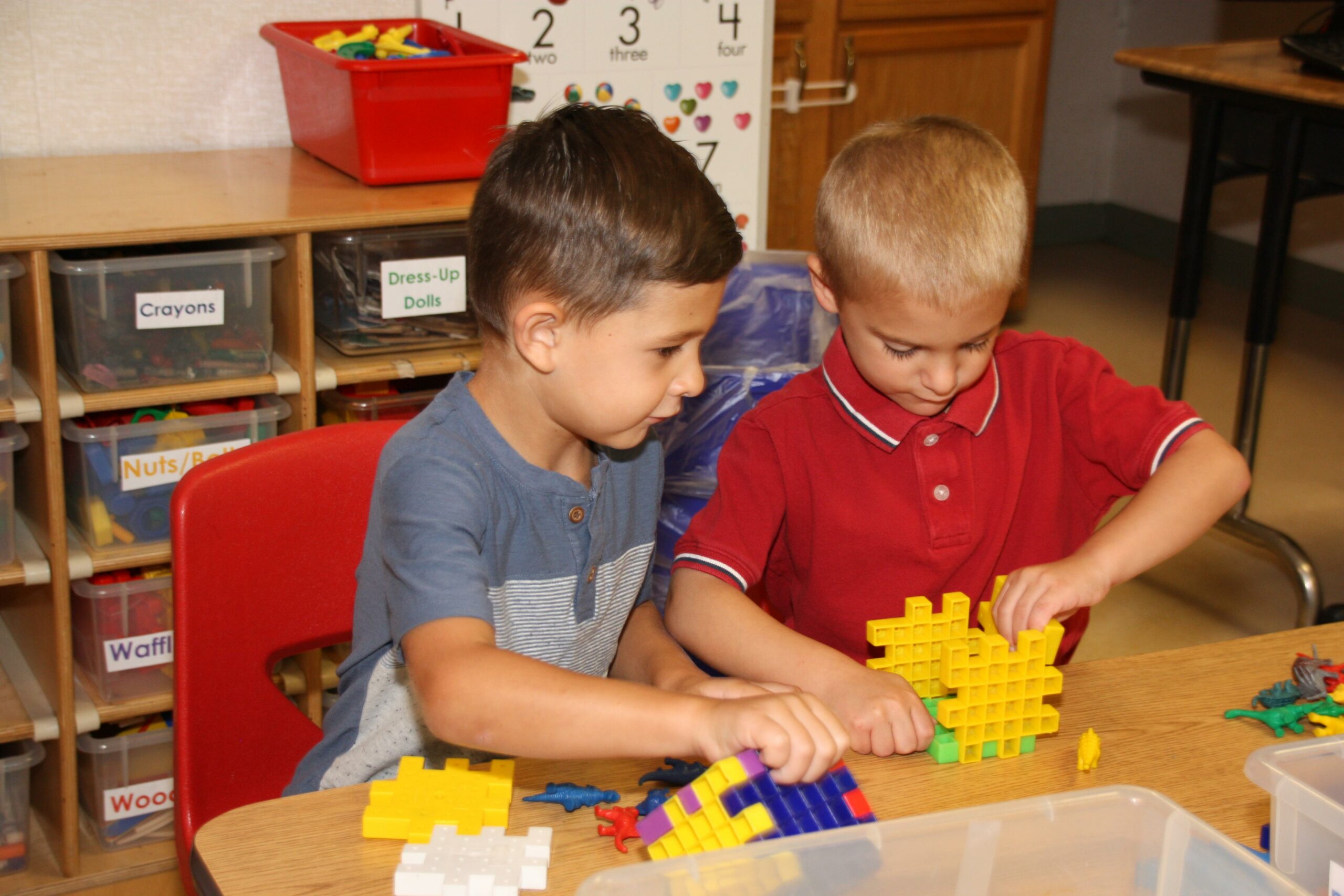
The human brain develops to 90% of its adult capacity by the age of 5. This means that a child of preschool age is experiencing vast amounts of growth. One of the major growth areas is your child’s emotional, social, and independence skillset.
Benchmarks in this area include: eating independently, being toilet trained, washing hands, dressing with little or no help, separating from parents without experiencing overwhelming anxiety, and taking turns when playing. Here are a few tips for helping your child grow in this space.
Emotions:
- Provide your child with the vocabulary of emotions to better help them express their feelings. You can do this by utilizing a visual aid such as an emotion chart or emotion picture cards.
- Lead by example by talking appropriately about your own emotional experience throughout the day. Let your child see that it’s OK to express how they feel.
- Create methods for handling big emotions like taking time to sit down, taking deep breaths, or counting to a certain number.
Social:
- Set up playdates. Giving your child ample amount of time to interact with other peers helps them naturally learn about boundaries and respect.
- Create activities that involve taking turns like sharing about your day while enjoying a meal or playing a board game. This helps teach your child the importance of treating others the way they enjoy being treated.
- Read books with characters engaging in social situations. By seeing the myriad ways characters in books handle social interactions, your child picks up on social cues, different methods for handling emotions, and the resulting consequences or rewards of those decisions.
Independence:
- Have your child be responsible for specific tasks around the home such as setting the dinner table or cleaning their room. This helps children feel involved and self-confident.
- Have them dress themselves even if their style choices make your head hurt! By allowing your child to pick out their own clothing, you encourage their self-expression and give them the self-respect of clothing themselves, one of the most intimate and personal of habits.
- Give them a comforting reminder of you during times of separation. Children crave the comfort of a parent and experiencing separation can be very challenging for them initially. Giving them a picture of you or kissing a piece of cloth and letting them carry it with them in these situations can help lessen their anxiety.
Academic Skills
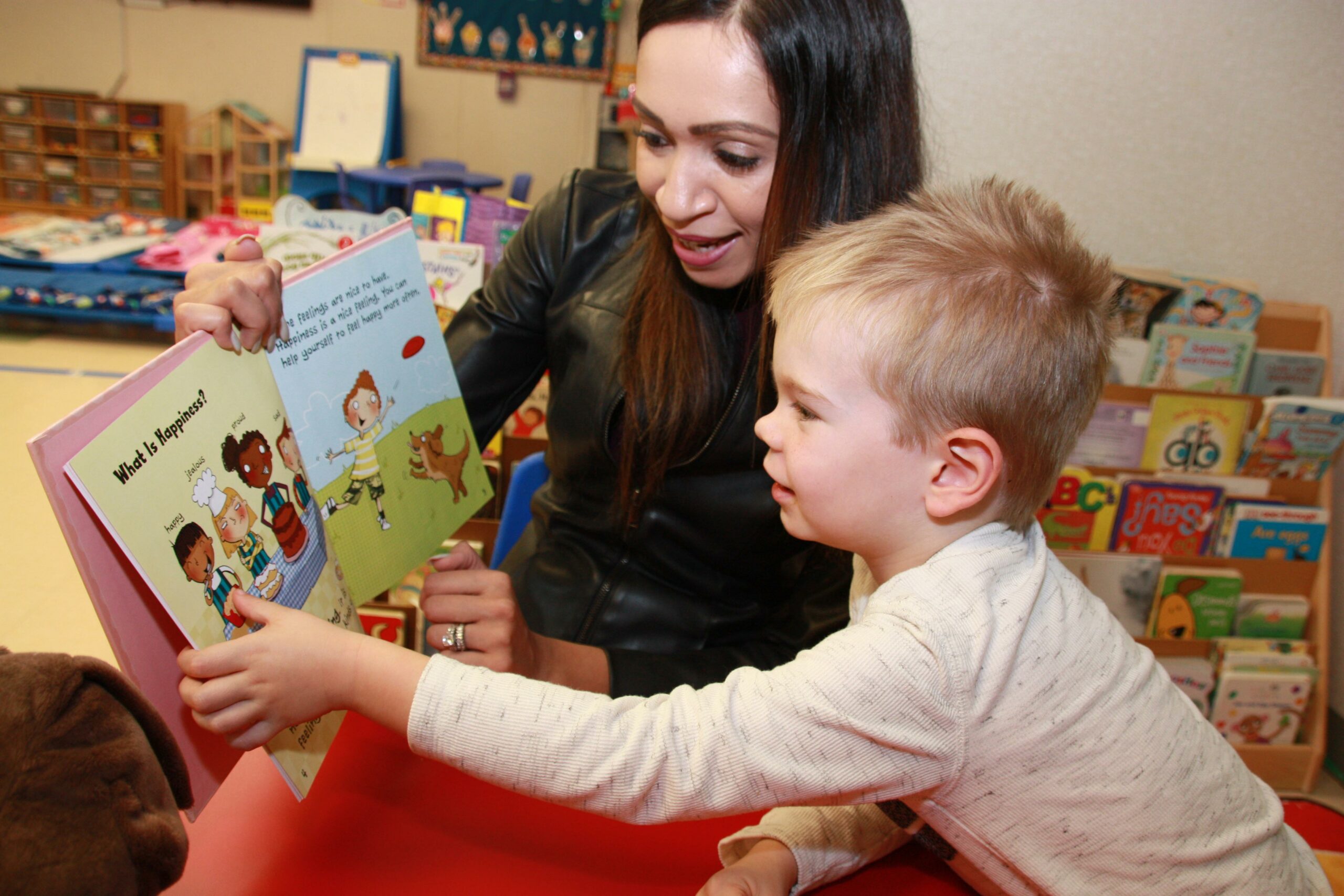
Prepping your preschool age child for their education involves getting their brain familiar with very basic shapes, colors, and symbols. This way, they are set up to learn more in-depth lessons about reading, math, and science upon entering the classroom.
Benchmarks for this area are: recognizing basic shapes and colors, reciting the alphabet, counting to five.
- Point out and name numbers in real life or shows/books throughout the day so your child can begin to connect the shapes and names with the meaning.
- Read loads of books. Having a dedicated reading time each day can be a great way to ensure you are introducing a wide array of vocabulary as well as introducing symbols, letters, colors, and numbers. This is also a good way to introduce learning the alphabet.
- Play with blocks and puzzles. The more tangibly your child can interact with the concepts of math, literacy, and science, the better. Help your child recognize familiar shapes and observe how they can fit together.
Language Skills
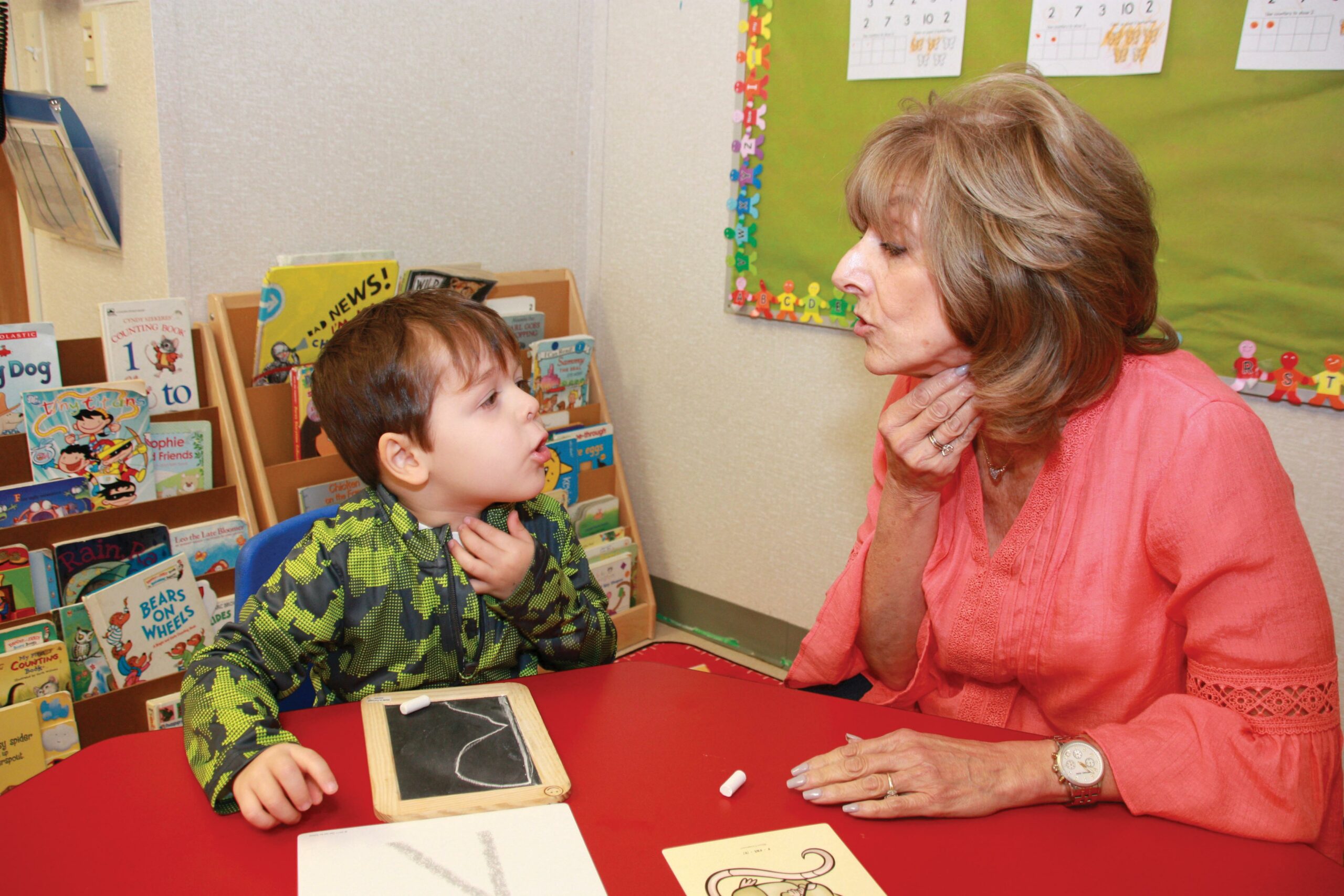
Language development is intimately tied to all other areas of your child’s preschool-age growth. Developing language skills also opens your child to improving memory, curiosity, imagination, thinking, and reasoning abilities.
Benchmarks for this area are: following 1-2 step directions, speaking sentences with 3-4 words, naming common objects, reciting first name and age, and verbally expressing needs.
- Encourage listening skills by verbalizing activities throughout the day. By putting into words what you are doing and what your child is doing, your child learns to make connections between action, language and thought.
- Look your child in the eyes when giving instruction. This helps to focus both you and your child on what’s being said. It also creates a sense of intimacy and trust in the learning process.
- Create 2-step instruction games. Practice giving your child two instructions in one sentence to help them achieve listening and verbal reasoning. The Empowered Parents blog has an excellent post with 2-step instruction ideas to try out with your child.
- Add on words to a sentence your child creates. When your child says something, repeat what they’ve said and add on a few more words of detail to it. This models for them how to connect ideas and create longer, more intricate sentences.
Fine Motor Skills
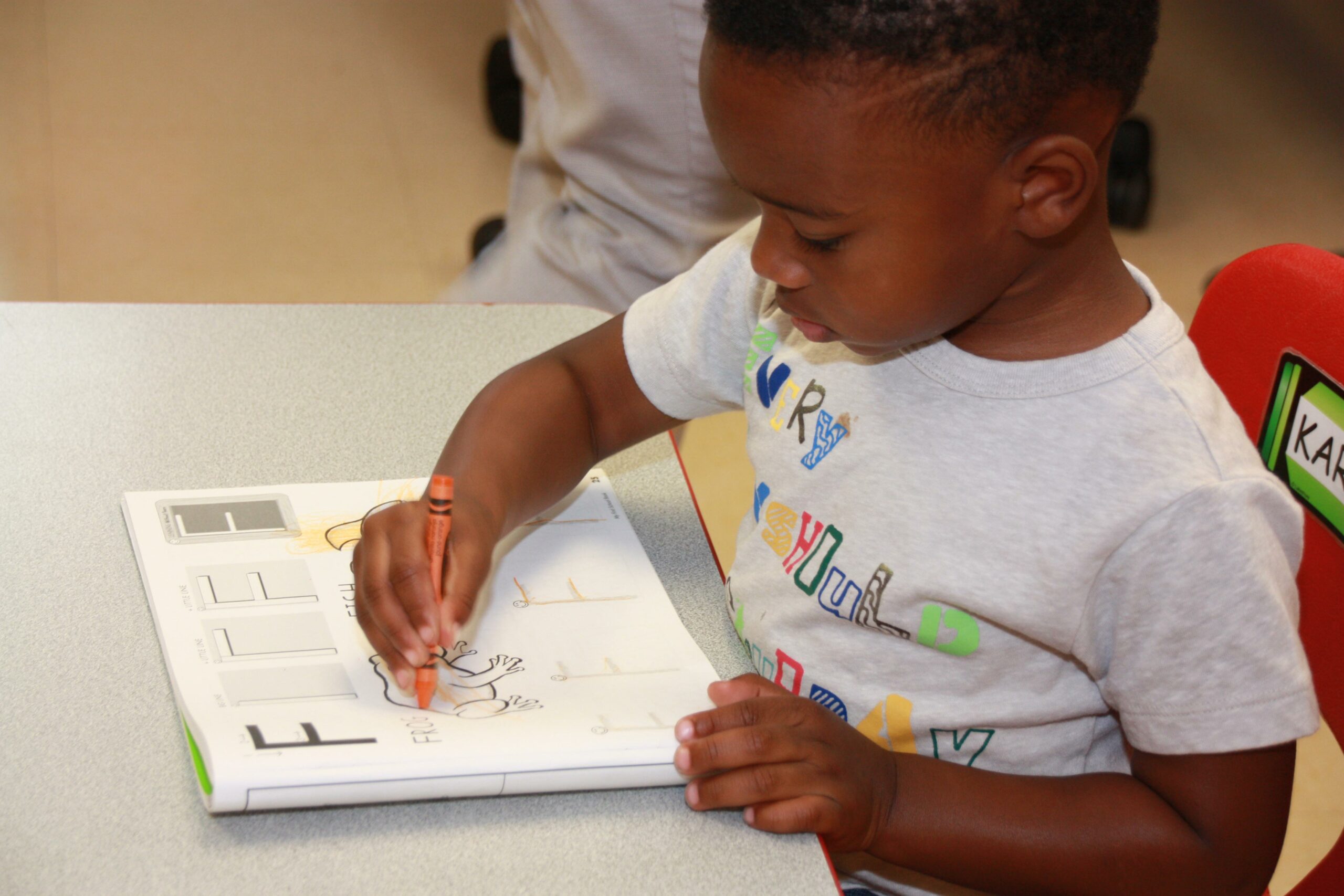
Preschool-age children love to move and learn how to use their bodies in big ways! It’s also important to teach them how to use their bodies in small ways. Fine motor skills involve learning how to control and use the small muscles in the hands, wrists, fingers, and feet. Learning these fine motor skills improves preschoolers’ sense of self-confidence and self-care.
Benchmarks in this area include: stacking blocks, using toys with movable parts, holding books right-side up, and turning pages one at a time.
- Do a lot of art. Coloring, painting, and drawing will help your child develop the finer muscles needed for these art endeavors. And they get to make something visual of their own which gives them a sense of accomplishment!
- Create a routine for turning pages. By helping your child develop their own method for turning pages in a book, or teaching them a specific method, you lock in a concrete form that will help their fine motor skills and memory. Try this video’s method out!
- Build with blocks and legos. Turn skill-set time into play time by providing your child with lego and block projects. Help them build a lego set or create their own. This helps your child develop a gentle touch as well as hone puzzle-solving abilities.
- Eye dropper tests. We love this idea from the Inspiro blog! Fill small glasses of water with different colored dyes and have your child use an eyedropper to play with mixing the colored water. The eye dropper is the perfect fine motor skill training tool and the game also teaches about colors and color theory!
As you can see, there are many engaging ways to help your child enjoy the process of developing their social, academic, language, and motor skills.
The Importance of Prepping for Preschool Education
By beginning to work on these areas with your child at home, you set them up for a wonderful preschool education experience – an experience which research shows is an extremely important part of academic growth.
The Learning Policy Institute conducted research into the effectiveness of a preschool education and found that students who attended preschool were overall better equipped for future academic success, less likely to be held back in grades, and experienced improved early development of math and literacy skills. The research further examined types of preschool education programs and found highest effectiveness came from programs that gave enough learning time, maintained the appropriate level of developmental pacing, and had highly qualified instructors.[1]
Cedar Hill Prep cares deeply about our Preschool Education Program, and we are so proud of the classroom environment we have created for our Preschoolers. If you’d like to learn more about our Preschool education or are interested in enrolling your preschooler, contact us at admissions@cedarhillprep.com, or call 732-356-5400.
Additional Resources:
Skills Needed Before Entering Preschool – Brochure designed by Ellen Kane, CHP Marketing Creative Director
Preschool Cognitive Development: Pre-Academic Skills — Mindful Me Therapy
Preschoolers 101: Understanding Preschooler Development (parents.com)
Preschool Readiness: 5 Ways to Build Social Skills | Scholastic | Parents
Language Development in Preschoolers – Preschool.org
Importance of Language Development in Preschoolers (howtoadult.com)
Top Tips for… helping a child to use sentences – Speechbloguk


